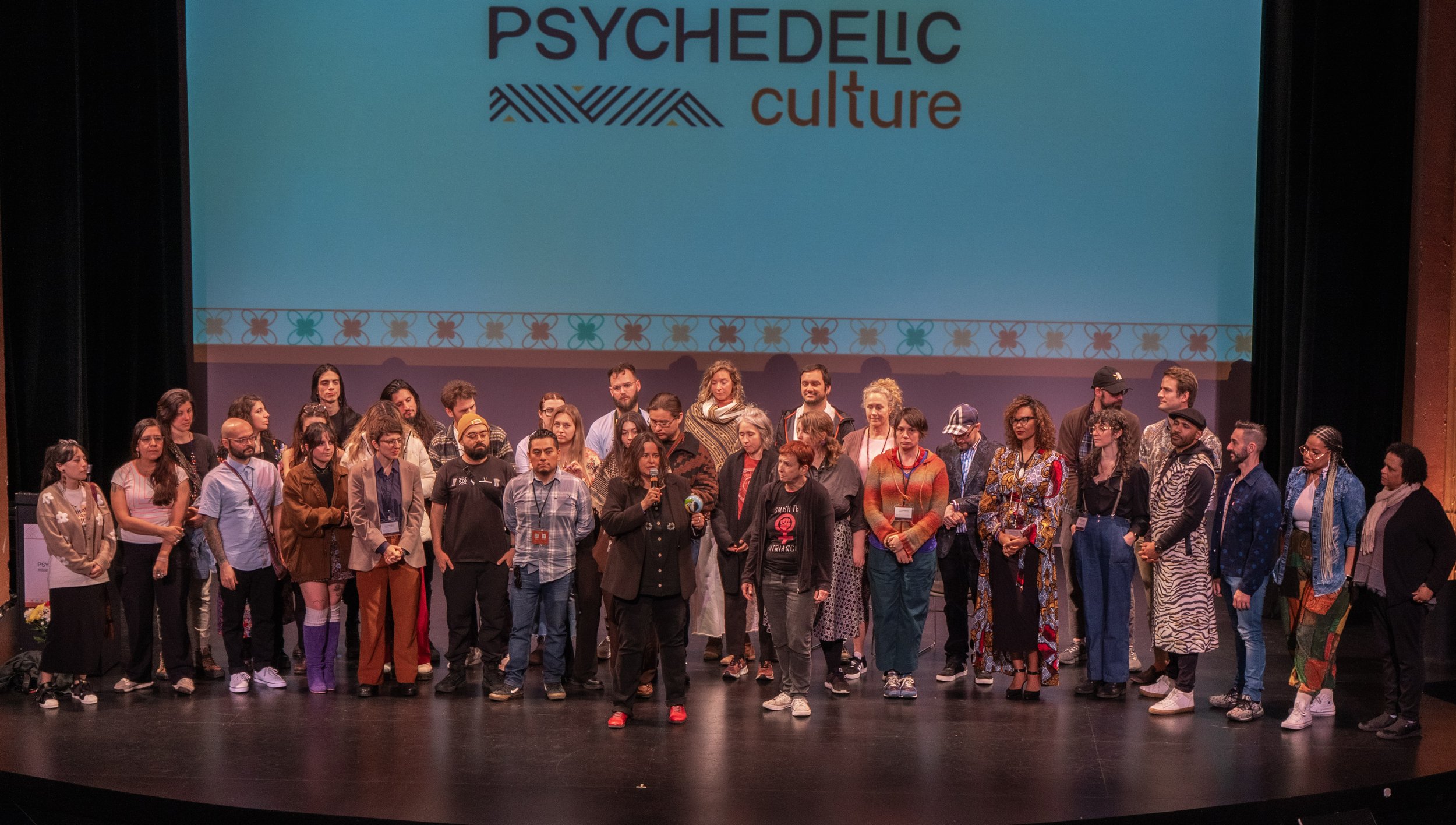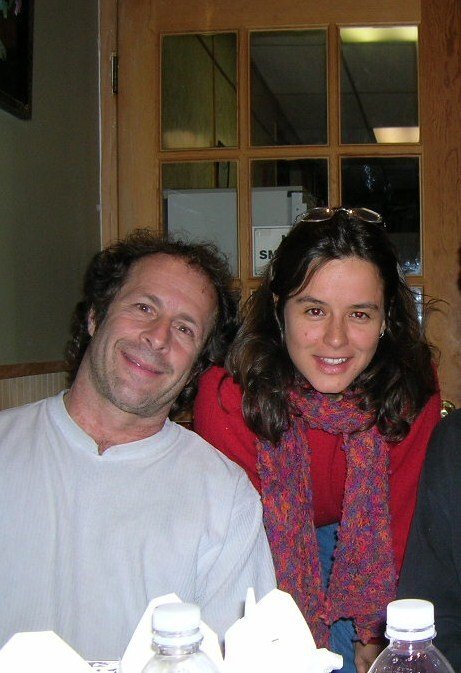Dr. Bia Labate’s Life Story
My life has taken me across countries, cultures, and communities, from Brazil to Germany, Mexico, and now California. Along the way, I’ve organized conferences, sat in ceremonies, taught classes, joined protests, and fallen in love with plants, lands, and people. It’s been a wild, beautiful mix of academic work, activism, personal transformation and spiritual inquiry.
What ties it all together is a deep love for sacred plants, cultural traditions, community, and justice. Everything on this page, whether it’s about Chacruna, MAPS, my academic path, my marriage, or my cactus garden in the semi-desert, is part of that story.
Brazil
I was born and raised in São Paulo and lived there until I was 38. I’m the daughter of two psychologists and grew up surrounded by conversations about the soul and human behavior. From the age of 10 to 26, I was part of an international peace and intercultural organization, which sparked my love of travel and shaped my curiosity about other cultures. Deep down, I still feel like a camp counselor: organizing, bringing people together, and having fun in a collective team setting.
Though I’m from a big city, I’ve always felt a strong pull to nature. I spent years backpacking across Brazil and South America, and even did a year-and-a-half-long road trip through the Americas. Over time, I fell in love with Brazil’s northeast beaches and the mountains of Minas Gerais, places that still feel like home.
I studied at the University of Campinas (UNICAMP), earning a BA in social sciences, and an MA and PhD in social anthropology. I’m also the co-founder and site editor of NEIP, Brazil’s Interdisciplinary Group for Psychoactive Studies, and have helped lead working groups on psychoactive substances and related practices at the conferences of the Brazilian Anthropological Association for over 20 years.
My passions—some lifelong, some just for a season—include connecting with people, sharing food, Capoeira Angola, swimming, hiking, languages, public speaking, reading, dogs, motorcycles, and long road trips in an SUV.
Plant Medicines
I first experienced mushrooms and peyote at 19 while backpacking through Mexico and the U.S., an encounter that changed my life. A few years later, at 26, I drank ayahuasca in Brazil, sparking what would become a lifelong passion.
Since then, I’ve traveled dozens of times to the Amazon, taken part in plant diets and retreats, and sat in hundreds of ceremonies across different traditions: Brazilian ayahuasca religions like Santo Daime and UDV, Peruvian mestizo vegetalismo, and Indigenous lineages like the Shipibo, Huni Kuin and different Colombian traditions, as well as urban and hybrid New Age spaces. For a while, I kept a cabin near the Bolivian border and, for 24 years, a mountain house in southeastern Brazil, where I grew over 200 ayahuasca vines and hosted conversations and ceremonies with elders and friends
There was a time I thought I might become a healer, but over time, I realized my path was more about researching, learning, bridging, and advocating. While I’ve participated in many mushroom and peyote ceremonies, especially during my time in Mexico, ayahuasca has always been my main teacher and guide. Everything I do is grounded in my deep love for these plants, and the people, lands, and traditions from which they come.
Academia
My academic life has been shaped by an interdisciplinary approach to the study of psychedelics and related fields. I’ve published 28 books, three special edition journals, and dozens of peer-reviewed articles and chapters. My research has focused on plant medicines, drug policy, shamanism, ritual, religion, and social justice. Over the years, I’ve held various teaching and research positions in Germany, Mexico, and the U.S., including at the California Institute of Integral Studies (CIIS), Naropa, and the Graduate Theological Union at Berkeley.
While I’ve been a prolific academic, I’ve often found the academic world to be limiting. I am passionate about public education and making research more accessible and relevant beyond the university setting. In many ways, Chacruna is my way of continuing that academic work, just in a more dynamic, community-based, and justice-driven form.
Germany
From 2009 to 2011, I lived in Germany, where I worked as a research associate at the Institute of Medical Psychology at Heidelberg University. There, I was part of an interdisciplinary project exploring the ritual use of plant medicines in Europe, trying to bring a more holistic lens, one that honored set and setting, into medical and therapeutic spaces.
I spent three years studying German—which was both a challenge and a joy—and I got to experience real winter for the first time, though I quickly realized I’m more of a sunshine kind of person!
Living in Europe was like stepping into a beautiful mosaic of languages, cultures, and traditions. I had the chance to sit in ceremonies across several countries, and each one added a unique flavor to my understanding of the relationship between healing and cultural context. This experience added to my cosmopolitan outlook and love for travel and culture.
Mexico holds a very special place in my heart; it is one of the places I call home. From 2012 to 2019, I was a visiting professor at CIDE in Aguascalientes and CIESAS in Guadalajara, researching the impact of the War on Drugs and the traditional and contemporary uses of plant medicines. Learning about the fallout from the drug war: disappearances, violence, and collective trauma, was deeply difficult and transformative. At the same time, connecting with Mexico’s incredibly rich psychedelic traditions, flora, and fauna was profoundly inspiring. Psychedelics have played a central role in the country’s ancient cultures, and that legacy is still very much alive.
I traveled the country for fieldwork, sat in peyote and mushroom ceremonies, fell in love with the desert, and even started my own cactus garden. I continue to be enchanted by Mexican humor, language, and its Indigenous roots.
A big part of Chacruna’s team is in Mexico, and we often get together in person and co-create events and publications through Chacruna Latinoamérica.
Mexico
I like to say that psychedelics didn’t heal me, California did! After attending Psychedelic Science 2010 and meeting Clancy, I fell in love with this place. California gave me the freedom to come out as a queer woman and truly become myself.
I’m inspired by its natural beauty, progressive roots, and the strong Latin presence I see everywhere; even Uber drivers know what ayahuasca is!
It’s an honor to serve as a bridge for Latin voices, helping bring activism, ceremony, and love from the Global South into the heart of this fast-paced, tech-driven Bay Area world.
California
The Chacruna Institute for Psychedelic Plant Medicines is a reflection of my personal journey, which began when I first ate mushrooms in Huatla, Mexico. It is a result of a lifelong passion for sacred plants, cultural traditions, and psychedelic justice. Our motto is “Protecting Sacred Plants, Advancing Psychedelic Justice.” Through strategies like The Indigenous Reciprocity Initiative, we support biocultural conservation and uplift voices often excluded from the mainstream psychedelic ecosystem: women, queer people, indigenous peoples, people of color, and the global South.
Chacruna has become one of the leading nonprofits in the field. We’ve hosted 13 conferences with over 11,000 attendees; published over 1,000 articles, reaching 1.7 million readers; created 15 educational programs, and launched 160+ community forums. Our website draws more than 30,000 monthly visitors, and our Instagram has grown to over 55,000 followers (data from June 2025).
Running Chacruna is like doing a real-life MBA. I have learned everything from leadership to legality, operations, and funding. But what I cherish the most is the team and the incredible talent that we attract. I am especially proud of our internship program and love watching the next generation thrive and shape the future of this ever-evolving field.
My goal is to administer Chacuna as a collective-led organization, and I am proud of our capacity to run conferences and educational programs fully in-house. There is a strong camaraderie spirit and momentum in our team, rooted in shared vision and collaboration.
Chacruna
I first met Rick Doblin in 2007 at the Drug Policy Alliance conference and soon began volunteering with MAPS. Over the next decade, I served as a key resource on plant medicines, the Global South, and qualitative research. I’m especially proud of creating the first ayahuasca and plant medicine track at the Psychedelic Science conference in 2010, a role I continued to shape in later editions.
Since 2018, I have worked part-time at MAPS. I currently serve as Senior Advisor for Culture and Strategy. In this role, I oversee the MAPS Bulletin, develop content, support the advancement of the psychedelic ecosystem, help foster connections with Latin America and grassroots communities, advise on plant medicine research, social justice and drug reform issues.
My connection to MAPS has profoundly shaped both my work and life: it deepened my path as an anthropologist addressing health care professionals, brought Clancy into my life, and ultimately influenced my decision to move to the U.S., where I now live and work.
MAPS
In 1997, I organized my first conference: CURA (Conferência sobre o Uso Ritual da Ayahuasca) at Unicamp in Brazil. It was one of the first mainstream academic events on ayahuasca, and a powerful meeting of minds and traditions. Since then, I’ve organized or contributed to over 150 events.
This work is rooted in something I’ve loved since my youth as camp counselor. Conferences became my adult version of gathering big teams for meaningful experiences.
I’ve also attended conferences consistently since ’97, and in one of them, Queering Psychedelics, I came out as a queer woman, in tribute to my wife Clancy, who lovingly stood by me during the nine years I stayed closeted.
I love being on stage, cracking jokes, and holding attention, not just for my own ego, but because I see conferences as shared ceremonies. They compress time and space. In just hours, lives can shift. People meet future partners, ideas are born, and movements begin. It’s collective magic.
Events
I met my wife, Dr. Clancy Cavnar, in 2010 at the MAPS Psychedelic Science conference in San Jose, and we’ve been together since then. Clancy is my soulmate, my biggest supporter, and the quiet force behind so much of what I do.
She brings humor, wisdom, and talent to everything, from clinical psychology and ayahuasca ceremonies to writing, research, and visionary art.
After seven years of dating long distance, I finally accepted her invitation to move to San Francisco, where we now live with our beloved maltipoo, Duggi. Through our marriage, I also became an American citizen.
Together, we drink ayahuasca, travel the world, co-create books and conferences, shoot goofy videos, and show up for justice. Ours is a life of love, laughter, and deep purpose.
Wife
Clancy and I made a conscious choice not to have children of our own. Instead, we love being Tias (aunties) to the kids in our lives and proud moms to our beloved maltipoo, Duggi.
We joke that he’s a first-generation Brazilian-American-Mexican pup, and he’s definitely trilingual! Duggi has a big personality: playful, social, sweet, and occasionally dramatic, he’ll randomly bark at bigger dogs and gets hilariously jealous whenever we show each other affection.
He’s my daily companion on long walks, which keep me grounded, sane, and connected to the world around me.
Duggi
Request an Interview
Request an interview or download up to date biography and photos of Dr Bia Labate, approved for media use.










